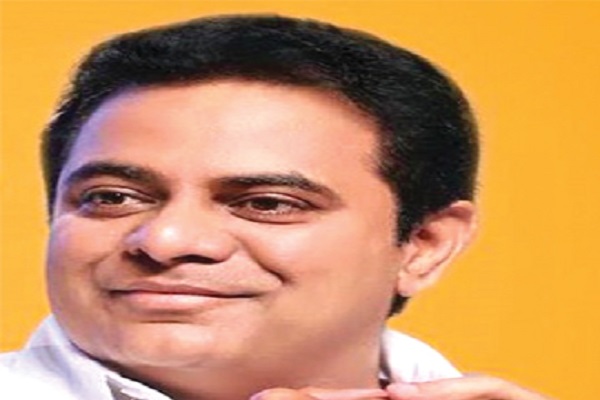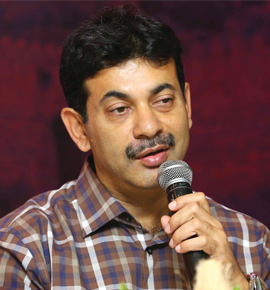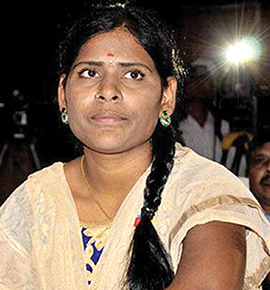
‘Real India’ lives in the villages. The flagship programme of Indian Government – Digital India – cannot be realised unless the rural spaces of the country are empowered digitally. On the same lines, the Telangana Government seems to be surging in the right direction with its ambitious project ‘Digital Village’ under its initiative ‘Digital Telangana’, writes Sudheer Goutham of Elets News Network (ENN)
Digital Telangana initiative is much more ambitious than that of Digital India indicate the functionaries of Telangana Government. And looking at the results of initial roll- outs, targets and outlines of the plan, the officials seem to be ‘walking the talk’.
Telangana Information Technology and Panchayat Minister KT Rama Rao, said, “Digital Telangana is aimed at enabling digital empowerment of citizens, facilitating digital infrastructure as a utility to every citizen and providing governance as well as services on demand.”

Leveraging on the portfolios he is holding, KT Rama Rao and his team is working towards bringing the perfect sync to enable villages with the modern technologies. The Telangana Government, in its plan to improve digital literacy and providing infrastructure, is laying Optic Fibre Cable to each household using the water grid trenches to a whooping 8.5 million households.
Telangana IT Secretary, Jayesh Ranjan shared, “This connectivity provides 4G services in the entire State, Wifi in major cities and towns. The ePanchayat scheme of the plan will function as a one stop shop kiosk in each Panchayat.”

Digital Telangana stands on two pillars – supply and demand. On the supply side, the goal was ‘Internet for all’ and on the demand side, it was among others, to ensure that each household had at least one member who could be termed ‘digitally-literate.’ “Taking advantage of our Government’s Drinking Water Mission programme, we will provide Internet to 8.5 million households,” said the IT Secretary.
As part of the digital plans, the school computer literacy programme to teach every child from Class VI onwards the basics of computers, expansion of mee- seva services are being planned by the State Government.
Our benchmarks are higher and we wish to ‘catch them young’ by having an interesting computer education from Class VI onwards to digitally prepare the citizens of tomorrow. And by using broadband, 4G and WiFi together, we wish to take the number of citizens’ services we offer digitally, up from the present 320 to over 400,” said Ranjan.
ePanchayats
The Telangana Government has opened ‘Digital Telangana Centres’ managed by women in 100 panchayats across the State and plans to open such Centres in 1,000 others by January 2016, an initiative in which several banks and insurance firms have evinced interest. The ‘Digital Telangana Centres’ or ‘ePanchayats’ programme of the State Government, which offers eGovernance facilities to villagers, was launched on October 2 in Nalgonda district and it currently runs at 100 panchayats. And the government plans to add another 1000 such centers by next year. These Centres will be managed by women, who are trained in using computers and software to operate the ePanchayat programme.
Each Centre will have PCs, laptops, printers, scanners and large- size LED TVs. `2.5 lakh is being spent on each Centre.
“In Telangana, there are 8,750 gram panchayats (GPs) and our goal is to start one ‘Digital Telangana Centre’ in each panchayat. Each Centre will be managed by a local woman, who will be called the Village Level Entrepreneur (VLE). So far 100 women have been trained and they are working at 100 Centres since last month. Their performances are under assessment and we will start imparting training to another 1,000 women in the next one-to-two months, who will manage the new Centres at 1,000 panchayats,” he said.
“Each ePanchayat will have these ‘Digital Telangana Centres’ where all kinds of facilities/services will be made available digitally i.e. electronically at the doorsteps of rural people,” informed the Telangana IT Secretary.
“Citizen services, government services, payments of social welfare pensions and wages for rural employment, will be made available through these Centres, which will also be converted into banking and insurance centres,” he added.
Already several banks which have branches in our State have agreed to convert these Centres also as their rural branches which will facilitate the account holders in the villages, who can get their banking work done at these Centres. State Bank of Hyderabad, Telangana Gramin Bank and Andhra Bank have already extended their services at the 100 Centres.
Likewise, insurance firms are also coming forward to adapt these Centres into insurance centres. “Future Generali was the first insurance firm to extend its proposal to link their insurance services. The government also has plans to expand the scope of services offered by these Centres to include training for farmers and coaching for students,” said Ranjan.
The LED TVs at these Centers will be leveraged by relaying the State Government’s own television channel – Mana TV. Through the channel, training programmes will be relayed for farmers at fixed slots. Similarly, coaching programmes on various examination subjects for students who are appearing for the Public Service Commission exams will also be shown.
“Telangana IT department officials in the districts will impart one-week training to the selected women, who are educated women from the villages. In this way, the government plans to cover entire 8,750 GPs in a phased manner over the next two-to-three years,” informed Ranjan. The 8,750 women will be managing these ‘Digital Telangana Centres’ turning them into entrepreneurs. These women will not only be providing a very valuable community service, but they will also be improving their sources of livelihood through user fees and other revenue streams,” he added.
First Village Level Entrepreneur
The Telangana Government digital literacy programme is simultaneously running with that of Government of India’s and Intel’s initiative ‘Ek Kadam Unnati Ki Aur’ meaning ‘A Step Towards Progress’. Vanga Nageshwari, the daughter of a farmer in Telangana, became the first ever head Vanga Nageshwari of Intel’s Digital India centre, under this programme.
Unable to continue her studies due to the poor economic background, Nageshwari borrowed money to start a computer training institute with eight PCs at Nadimpalli village. Later she decided to convert the institute into a CSC (Common Services Centre) and began to offer Mee-Seva, or eGovernance services. Soon her efforts caught the attention of Velugu, a World Bank-supported poverty-alleviation programme, which was pooling candidates for Telangana’s ePanchayat programme.
Her name was suggested by the Telangana IT department when the Intel wanted to roll out its GoI’s programme as pilot project in a village of Mahabunagar district in Telangana. She, along with her sister Nagarani, tours villages with three computers in tow. The duo spends a month in a village, making the people there digitally literate.
“It is a 10-day course, but it takes time to make them understand how to use a computer and a phone to access digital services,” said Nageshwari. So far, Nageshwari has trained about 800 villagers, of whom about a quarter have passed a digital literacy exam conducted by the Centre. For every student who clears the exam, Nageshwari earns Rs. 500.
Be a part of Elets Collaborative Initiatives. Join Us for Upcoming Events and explore business opportunities. Like us on Facebook , connect with us on LinkedIn and follow us on Twitter, Instagram.














